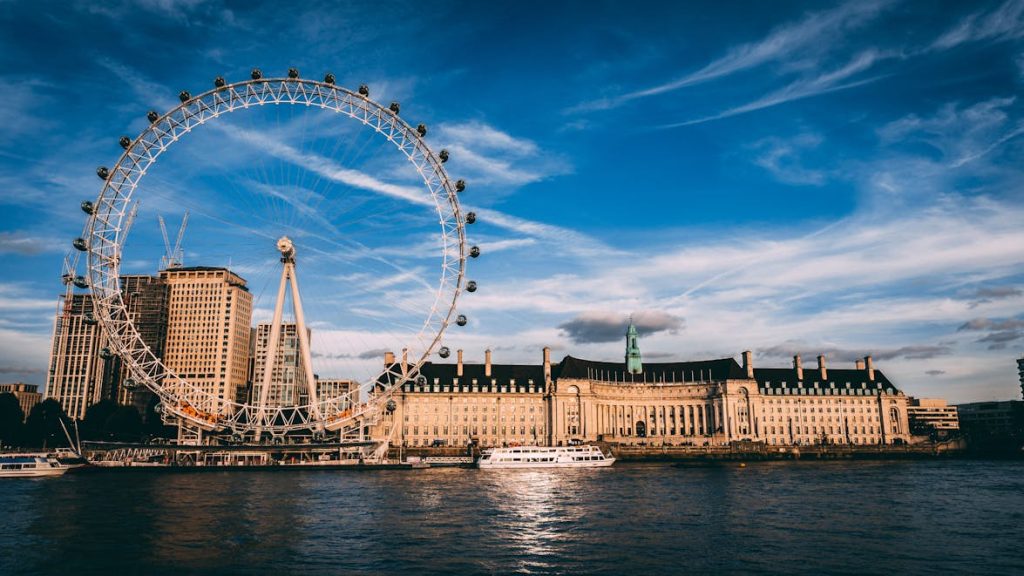Study Abroad in Ireland for Pakistani Students: How To Apply
Ireland, known for its rich history and vibrant culture, has become an increasingly popular destination for Pakistani students seeking quality education abroad. With its world-class universities, cutting-edge research facilities, and welcoming atmosphere, Ireland offers a unique blend of academic excellence and cultural experiences.

Highlights
Here are the key details related to studying in Ireland
2500+
Pakistani Students in Ireland
90%
Visa Approval Rate
30+
Total Institutions
September
Most Preferred Intake
6
Minimum IELTS Score
80
Minimum TOEFL (iBT) Score
PKR 25L+
Approximate Annual Study Cost
PKR 1.5L+
Approximate Monthly Cost of Living
Why Choose Ireland?

World-Class Education
Irish universities consistently rank among the top 1% globally, offering high-quality education recognized worldwide.

English-Speaking Country
As an English-speaking nation, Ireland provides an ideal environment for Pakistani students to improve their language skills.

Safe Environment
Ireland is known for its low crime rates and friendly atmosphere, ensuring a secure study experience.
Wondering If Pakistan is right choice for you?

Variety of courses available in Ireland
Bachelor's Degrees
3-4 years
Master's Degrees
1 - 2 years
PhD Programs
3-4 years
Higher Certificates
2 year
Ordinary Bachelor's Degrees
3 year
Academic Calendar to study in Ireland
Here’s what to expect if you want to study in Ireland
Autumn Semester (September - December)
This is the main academic term, featuring classes, assignments, and vibrant campus life. Be prepared for cooler weather as winter approaches.
Winter Break (December - January)
Enjoy a festive break to relax and explore Ireland’s holiday traditions.
Spring Semester (January - May)
Resume studies after the winter break, building on the autumn semester and preparing for final exams.
Easter Break (March/April
A short break to recharge before the final push of the academic year.
Summer (June - August)
Final exams conclude the academic year. Enjoy Ireland’s mild summer or participate in summer programs.
Student Visa Requirements for Ireland
You can prepare for your Ireland education journey with these essential visa requirements
- Acceptance into a full-time course at an Irish higher education institution
- Proof of English language proficiency
- Sufficient funds to cover tuition fees and living expenses
- Private medical insurance
- Valid passport
Letter of acceptance from an Irish educational institution - Proof of payment of tuition fees
- Evidence of funds (minimum €7,000 plus course fees)
- Two passport-sized photographs
- Proof of English language proficiency (IELTS, TOEFL, etc.)
- Medical insurance documentation
- Academic transcripts and certificates
- Statement of purpose
- References or letters of recommendation
- Proof of accommodation in Ireland (if available)
Admission Requirements in Ireland
General Documents required to study in Ireland
Must be valid for at least six months beyond your intended stay in Ireland.
IELTS, TOEFL, or other recognized English language tests are required.
Official transcripts from previous educational institutions are necessary.
A well-written essay outlining your academic goals and reasons for choosing Ireland.
Strong recommendation letters from professors or employers can strengthen your application.
Evidence of sufficient financial resources to cover tuition and living expenses.
Proof of comprehensive health insurance coverage for your stay in Ireland.
Completed application form specific to your chosen institution.
English Language Proficiency to Study in Ireland
Ireland universities typically accept the following English language tests:
IELTS
6.0 and above (Some programs may require higher scores, typically up to 6.5 or 7.0)
TOEFL
80 and above (Requirements may vary by institution and program)
PTE Academic
60 and above (Accepted by many Irish institutions as an alternative to IELTS or TOEFL)
Cambridge English
C1 Advanced or C2 Proficiency (Accepted by some institutions)
Other Requirements For
- Master Program
- Bachelors Program
- Bachelor’s degree in a relevant field from a recognized institution
- Minimum GPA of 2.5 or equivalent (higher for competitive programs)
- Work experience may be required for some programs, especially MBAs
Some programs may require GRE or GMAT scores - Portfolio or writing samples for specific programs (e.g., arts, journalism)
- Completion of Higher Secondary Certificate (HSC) or equivalent
- Minimum grades as specified by the chosen university and program
- Some programs may require SAT or ACT scores
- Portfolio or audition for specific programs (e.g., arts, music)
Cost of Studying in Ireland
Overview
Tuition fees in Ireland vary depending on the institution, program, and level of study. While fees can be substantial, Ireland offers high-quality education at generally lower costs compared to other English-speaking countries like the UK or USA.
Average tuition fee range
Bachelors
PKR 25L+
Masters
PKR 28L+
MBA
PKR 35+
PhD
PKR 20L+
Cost of Living in Ireland
Monthly living expenses for students in the Ireland (in PKR):

Accommodation
80K+ / month

Food
30K+ / month

Transportation
10K+ / month

Other Expenses
30K+ / month
Scholarship for Pakistani students in Ireland
Here are the key details related to studying in Ireland
If you are going to study at a Ireland university, you should be aware that tuition fees can vary depending on factors such as the type of institution, program of study, and location.
Government of Ireland International Education Scholarships
4,000,000
Walsh Fellowships
3,500,000
NUI Galway International Student Scholarships
2,500,000
UCD Global Excellence Scholarships
3,000,000
Trinity College Dublin Global Excellence Scholarships
3,500,000
See what our students say
Frequently Asked Questions
Yes, international students can work up to 20 hours per week during term time and full-time during holidays.
Graduates can stay for up to 24 months after completing their studies under the Third Level Graduate Scheme.
While accommodation can be competitive, especially in Dublin, universities often assist international students in finding suitable housing options.
Yes, there is a growing community of Pakistani students in Ireland, with support networks and cultural associations available.
Ireland has a mild, temperate climate with cool summers and mild winters. Be prepared for frequent rain throughout the year.
While costs can be high in cities like Dublin, Ireland is generally less expensive than other English-speaking countries like the UK or USA.
No, all courses are taught in English. However, learning some Irish can be a fun way to engage with the local culture.
Ireland is considered very safe, with low crime rates and a welcoming attitude towards international students.
Yes, Ireland is part of the EU, allowing easy travel to other European countries. However, always check visa requirements as Ireland is not part of the Schengen Area.
Yes, many Irish cities have Halal restaurants and shops, especially in areas with larger Muslim populations.











